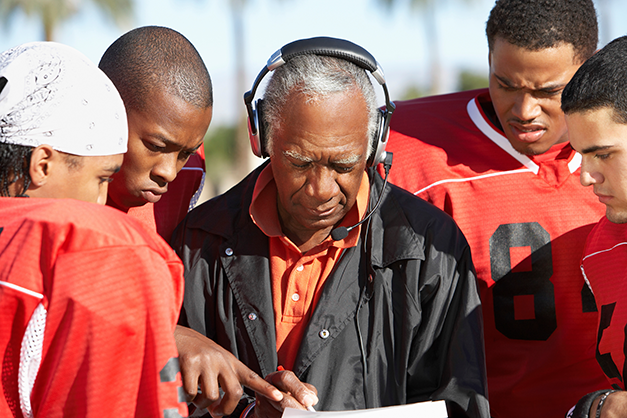
“If your athletes trust you, guess what…! You can now push them as hard as you want. When I come to a new program, those guys don’t know me, and I don’t know them. They absolutely should not trust me just because of my title. Just because I have a title of this doesn’t mean that I automatically garner automatic trust.
I say just give me the opportunity to show you that I’m trustworthy; let myself and my staff come to work for you guys every single day and show you what we’re all about; we don’t need to talk about it; just let us show you; give us an opportunity to show you. I think if it’s gone about in that way, you ultimately get that relationship that you’re looking for, and now you’ve created a training environment that your athletes want to be part of; you’ve created a program that coaches believe in, not just in the effectiveness of what you’re doing, but also in your care and your individuality put into each athlete.”
-Josh Storms, Collegiate Strength and Conditioning Head Coach
I love this quote by Coach Storms, who had so much gold in his interview with me that I struggled to choose what to include. His quote offers a valuable lesson for coaches regarding the importance of trust and how to establish it within a team. Here are some keys:
- Trust as a Foundation: Trust is the foundation of any successful coach-athlete relationship. Without trust, it can be challenging to push athletes to reach their full potential.
- Earning Trust: Trust is not automatically granted based on a coach’s title or position. Coaches must earn the trust of their athletes through their actions, consistency, and dedication.
- Leading by Example: Rather than making grand promises or declarations, Storms suggests that actions speak louder than words. Coaches should demonstrate their trustworthiness through their daily commitment and work ethic.
- Creating a Positive Training Environment: By emphasizing the need to show rather than tell, he promotes the creation of a positive training environment. When athletes see that their coach and staff are committed to their development and well-being, it fosters a sense of belonging and commitment to the team.
- Individualized Approach: Coaches should not treat all athletes the same way but rather recognize their unique needs and abilities. This approach contributes to a sense of care and support that athletes appreciate.
- Building a Program with Belief: Coaches should build a program that athletes and staff believe in. This belief extends beyond the effectiveness of the training methods to include trust in the coach’s character and dedication.
Ask Yourself
What do I do to get the trust of my athletes?
Do they trust me? Really trust me?
What strategy outlined in this section needs more emphasis in my program? How will I do it?

